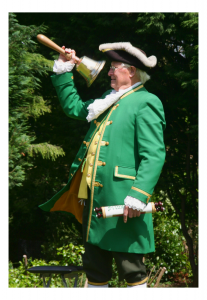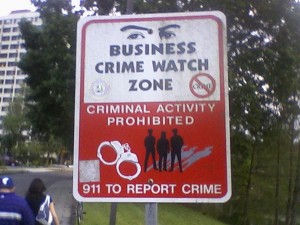
The following is adapted, with permission of the author, from Arnold B. Kanter’s THE INS & OUTS OF LAW FIRM MISMANAGEMENT.
All the good bits are his.
The stupid stuff is mine.
MEMO
To: All Station Employees
From: Boone, Doggle & Associates/Radio Consulting
Introduction to Confidential Survey
The management of this radio station truly wants to learn from you, their valued employees.
Although their executive bonuses for the past several years certainly suggest they’re already pretty darned successful, certainly there are areas in which they can improve the operation of this station.
And although of course you don’t receive executive bonuses, you might very well have some valuable insights, keen observations, and paradigm-shifting suggestions.
We sincerely want to hear your uncensored thoughts, unvarnished opinions …even your nonlacquered criticisms.
We have made it clear to your company’s management that the only way to insure 100% candid responses to this survey is for each response to be kept 100% confidential — even from your employer.
After all, it’s hard to tell us what an idiot your boss is if there’s any chance that he or she will know what you said.
That’s why all completed surveys will be viewed only by Mr. Boone, Mr. Doggle, and/or one or more of our more trusted associates. Your employer will receive a Summary of Conclusions (aka Conclusional Summation) that presents only an anonymous aggregate of all completed surveys, without in any way revealing any respondent’s identity.
Only Boone, Doggle & Associates/Radio Consulting staff members will see the survey respondent names. And you can be certain that we won’t pay any attention to who said what or reveal anyone’s identity to your employer because:
A) We really don’t care what you think. We’re just collecting this information for your employer. That is not meant as an insult or a flippant remark. When we say “We really don’t care,” it’s simply our way of saying, “We really don’t care.” We’re professional consultants; we don’t have to care.
B) We give you our word that under no circumstances will we reveal your identity to your employer. To break our word would be to blemish the enviably high regard radio professionals worldwide have for consultants. We have a reputation to uphold, and we’ll hold up that reputation no matter how heavy it gets, day or night, in all kinds of weather.
Instructions
1. This questionnaire is completely confidential. We won’t tell anybody your answers, under any circumstances. We realize that some people filling out a questionnaire like this might be afraid that their answers could lead to their being disciplined, fired, or even worse.
Frankly, that’s not such an irrational fear. But Boone, Doggle & Associates/ Radio Consulting didn’t get where we are today by kowtowing to the bribes, threats and pleadings of our clients.
Don’t get us wrong. We have the utmost respect for your employer. Quite frankly, your employer is admired throughout the industry for its history of integrity, innovation, and willingness to employ outside consulting firms.
But your employer shares our complete, total, and absolute respect for your privacy.
We recognize that for you to answer these questions openly, honestly, and without reservation you must be 100% certain we won’t reveal your identity under any circumstance — whether it be bribery, intimidation, or even the old “let’s get the consultants drunk and see what they’ll tell us” routine.
So please, just relax. Your secrets are safe with us.
2. When filling out this questionnaire, use only a Number Two pencil. If you do not have a Number Two pencil, use two Number One pencils.
3. Read each question carefully.
4. Answer every question.
5. Select only one answer to each question.
6. If you don’t know the answer, guess. There are no points deducted for incorrect answers, so it’s to your advantage to guess.
7. Remember, this questionnaire is completely confidential.
8. When answering the questions, make heavy marks in the appropriate spaces. Circle your answers. Or put a check mark by each of your answers. Or draw a heavy “X” through each selected answer. Or enclose your answers in triangles, quadrangles or pentagons. Absolutely no “smiley faces” will be permitted.
9. Be as frank and honest as you can in answering these questions.
10. Remember, this questionnaire is confidential.
Personal Information
(Note: All information you provide us will be kept confidential. The information requested in this section is necessary only for statistical purposes, to facilitate cross-analysis of variants in a manner calculated to maximize both the reliability and validity of the survey results. Remember, everything you put on this form will remain confidential.)
1. Name
2. Sex
A. Male
B. Female
C. Other
3. Height (in meters)
4. Weight (in stones)
5. Age (in weeks)
6. Favorite book (hardcover only)
7. Sexual Preference
A. Guys
B. Gals
C. Sheep
D. Beggars can’t be choosers.
8. The one thing you’d never want anyone ever to find out about you (Please be as specific as possible, using the other side of this paper if necessary):
Non-Personal Information
(Note: Some of these questions may appear not to relate to the subject being studied or to the questions that precede or follow them. That is because this survey has been designed in such a sophisticated manner that a layperson, such as yourself, cannot possibly understand what’s going on. So please stop trying to figure it out and just answer the damn questions.)
1. My understanding of the mission of this radio station is:
A. To serve the public interest
B. To entertain or enlighten our listeners
C. To propagate freedom of speech
D. To make as much money as we can before we drive away every last listener
2. Which of the following would most help increase this station’s profitability?
A. Increase ratings, then increase rates.
B. Say we increased ratings, then increase rates.
C. Encourage lower-level staff members not to steal so much of our office supplies.
D. Raise the price of admission to our employee restroom.
3. This station’s reputation in the broadcast industry is
A. Impeccable
B. Somewhat peccable
C. Very nearly completely pecked
4. In my opinion, our Station Manager
A. Is a god
B. While perhaps not technically a god, is remarkably godlike
C. Is a broadcaster’s broadcaster
D. Is an inspiration to us all, regardless of race, creed, and some religions
5. Disc Jockey “A” and Disc Jockey “B” leave the radio station for their respective vacations at exactly the same time. Disc Jockey “A” takes a train in a westerly direction, averaging 47 miles per hour. Disc Jockey “B” takes a bus, heading northeast at 60 miles per hour. Assuming normal traffic conditions and obeying all traffic laws, which disc jockey will be closest to the state line when he receives a call on his cell phone notifying him that he’s been fired?
6. Which best characterizes the feedback you receive from management?
A. If I don’t hear anything, I’m doing fine.
B. If I don’t hear anything, I’m in trouble.
C. If I don’t hear anything, either I’m fine or I’m in trouble.
7. You’re walking down the hallway when the Station Manager stops, smiles, and compliments you on your fine work. This is a sure sign that
A. Your work is appreciated.
B. You’re in line for a promotion.
C. You should start sending out your resumes now, because the Station Manager would compliment you only if driven by guilt over the knowledge that you’re about to be fired.
8. I would describe the atmosphere within this radio station as
A. Ideal
B. Perfect
C. Highly motivational
D. Humid, with a chance of showers in the early evening
9. I believe the best way this station can save money is to
A) Assign a full-time unpaid intern the task of continually requesting free demos from production music and jingle companies
B) Buy a week-old news service at “factory second” prices
C) Remind employees that there are two sides to a sheet of toilet paper
10. The ideal radio station employee is someone who is
A) Willing to work long hours
B) Willing to work for little pay
C) Willing to work for few if any benefits
D) Willing to work with no job security
F) Willing to work long hours, for little pay, for few if any benefits, and with no job security
Finished?
When you have completed this questionnaire, please give it to your Station Manager, who would like to look it over before sending it on to us.






